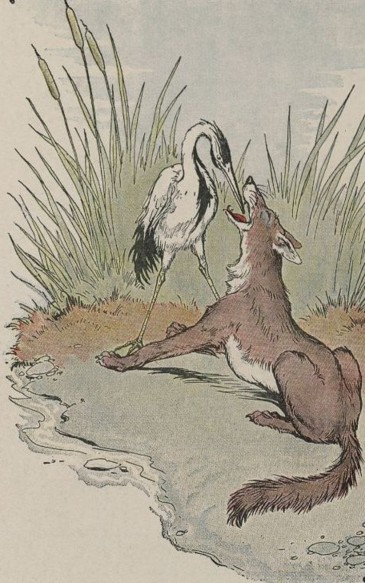PART A_1
Let’s learn vocabulary. Listen and repeat the words and the sentences with your tutor.
PART A_2
| 1. feast | /feest/ |
| -to have or partake of a feast; eat sumptuously. | |
| The kindergarteners feasted on newly baked cookies brought by their teacher. | |
| 2. greedy | /GREE-dee/ |
| -excessively or inordinately desirous of wealth, profit, etc.; | |
| Only few employees last in his company because he is greedy and cruel. | |
| 3. state | /steyt/ |
| -the condition of a person or thing, as with respect to circumstances or attributes: | |
| He was in a state of euphoria after she accepted his marriage proposal. | |
| 4. grasp | /grasp/ |
| -to seize and hold by or as if by clasping with the fingers or arms. | |
| A thief grasped her purse but she managed to retrieve it successfully. | |
| 5. wicked | /WIK-id/ |
| -evil or morally bad in principle or practice; | |
| Wicked people caused the family to live in isolation on a remote island. |
PART B_1
Let’s read the story. Please read it aloud, and I will check your pronunciation and intonation.
PART B_2
THE WOLF AND THE CRANE

A Wolf had been feasting too greedily, and a bone had stuck crosswise in his throat. He could get it neither up nor down, and of course he could not eat a thing. Naturally that was an awful state of affairs for a greedy Wolf.
So away he hurried to the Crane. He was sure that she, with her long neck and bill, would easily be able to reach the bone and pull it out.
“I will reward you very handsomely”, said the Wolf, “if you pull that bone out for me.”
The Crane, as you can imagine, was very uneasy about putting her head in a Wolf’s throat. But she was grasping in nature, so she did what the Wolf asked her to do.
When the Wolf felt that the bone was gone, he started to walk away.
“But what about my reward!” called the Crane anxiously.
What! snarled the Wolf, whirling around. “Haven’t you got it? Isn’t it enough that I let you take your head out of my mouth without snapping it off?”
Expect no reward for serving the wicked.
PART C_1
Let’s answer comprehension questions. Please answer them based on the story.
PART C_2
| 1. | What was the Wolf’s problem? |
| 2. | Which animal did it ask for help? |
| 3. | What kind of reward did the Crane get for helping the Wolf? |
PART D_1
Let’s discuss the story. Please answer the questions below and express your opinions.
PART D_2
| 1. | How would you describe the characteristics of the Wolf? |
| 2. | How would you describe the characteristics of the Crane? |
| 3. | If you were the Crane, how would you react to the wolf’s behavior after doing it a favor? |
| 4. | The fable’s lesson is “Expect no reward for serving the wicked.” Do you agree with this? Why or why not? |
| 5. | How do you deal with wicked people around you? |
REVIEW AND FEEDBACK
Now, let us review the things that you learned in this lesson.
ではこのレッスンで学んだことを振り返りましょう。
(Please give a short feedback on how your student did on your class.)
| Grammar 文法 |
Pronunciation 発音 | Vocabulary 単語 |
Comprehension 理解 |
|
|---|---|---|---|---|
 GOOD GOOD |
文法の誤りはほとんどなく、完全な文章で話すことができる | ほとんどの単語をはっきりと正しく発音することができる | 習った表現を適切に使うことができる | 文章を理解し、質問に正しく答えることができる |
 FAIR |
文法の誤りはあるが、完全な文章で話すことができる | 発音の練習が必要な言葉がいくつかある | たまにミスはあるが、習った表現を適切に使うことができる | 文章を完全に理解するのは難しく、質問に正しく答えられないときもある |
 POOR |
文章で話すのは難しく、単語だけで話すことができる | 発音の練習が必要である | 習った単語と表現を少しだけ使うことができる | 文章を理解するのは難しく、質問に答えるのは難しい |
Parts of this lesson material are based on:
An eBook from The Project Gutenberg.
This eBook is for the use of anyone anywhere at no cost and with almost no restrictions whatsoever. You may copy it, give it away or re-use it under the terms of the Project Gutenberg License included with this eBook or online at www.gutenberg.org
An eBook from The Project Gutenberg.
This eBook is for the use of anyone anywhere at no cost and with almost no restrictions whatsoever. You may copy it, give it away or re-use it under the terms of the Project Gutenberg License included with this eBook or online at www.gutenberg.org